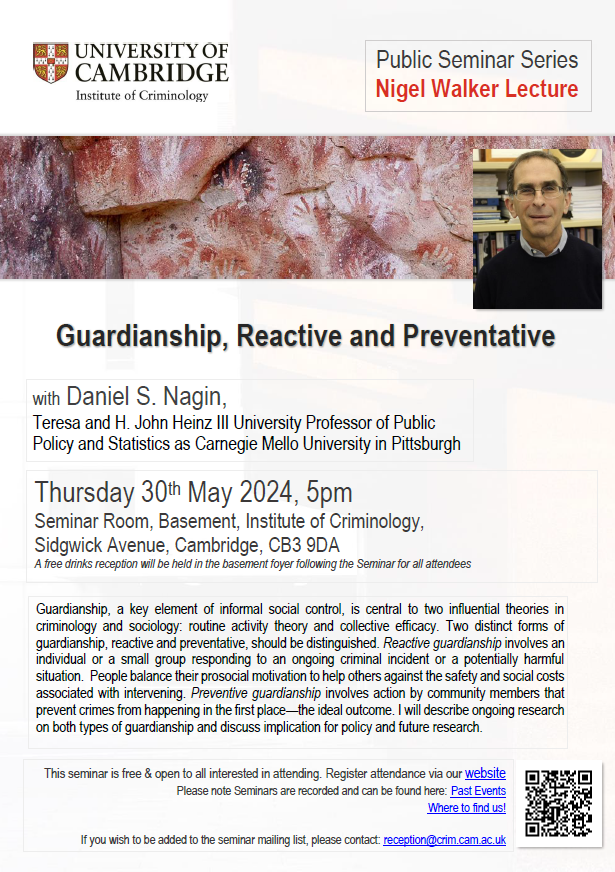
with Professor Daniel Nagin
To attend in-person, please register here!
To attend on-line, please register here!
Abstract
Guardianship, a key element of informal social control, is central to two influential theories in criminology and sociology: routine activity theory and collective efficacy. Two distinct forms of guardianship, reactive and preventative, should be distinguished. Reactive guardianship involves an individual or a small group responding to an ongoing criminal incident or a potentially harmful situation. People balance their prosocial motivation to help others against the safety and social costs associated with intervening. Preventive guardianship involves action by community members that prevent crimes from happening in the first place—the ideal outcome. I will describe ongoing research on both types of guardianship and discuss implication for policy and future research.
Bio
Daniel S. Nagin is the Teresa and H. John Heinz III University Professor of Public Policy and Statistics at Carnegie Mellon University in Pittsburgh. His research focuses on the evolution of criminal behaviors over the life course, the deterrent effect of criminal and non-criminal sanctions on illegal behaviours, and the development of statistical methods for analyzing longitudinal data. He is, amongst others, the recipient of the American Society of Criminology’s Edwin H Sutherland Award in 2006 and the Stockholm Prize in Criminology in 2014. He is also the co-editor of Criminology and Public Policy.
